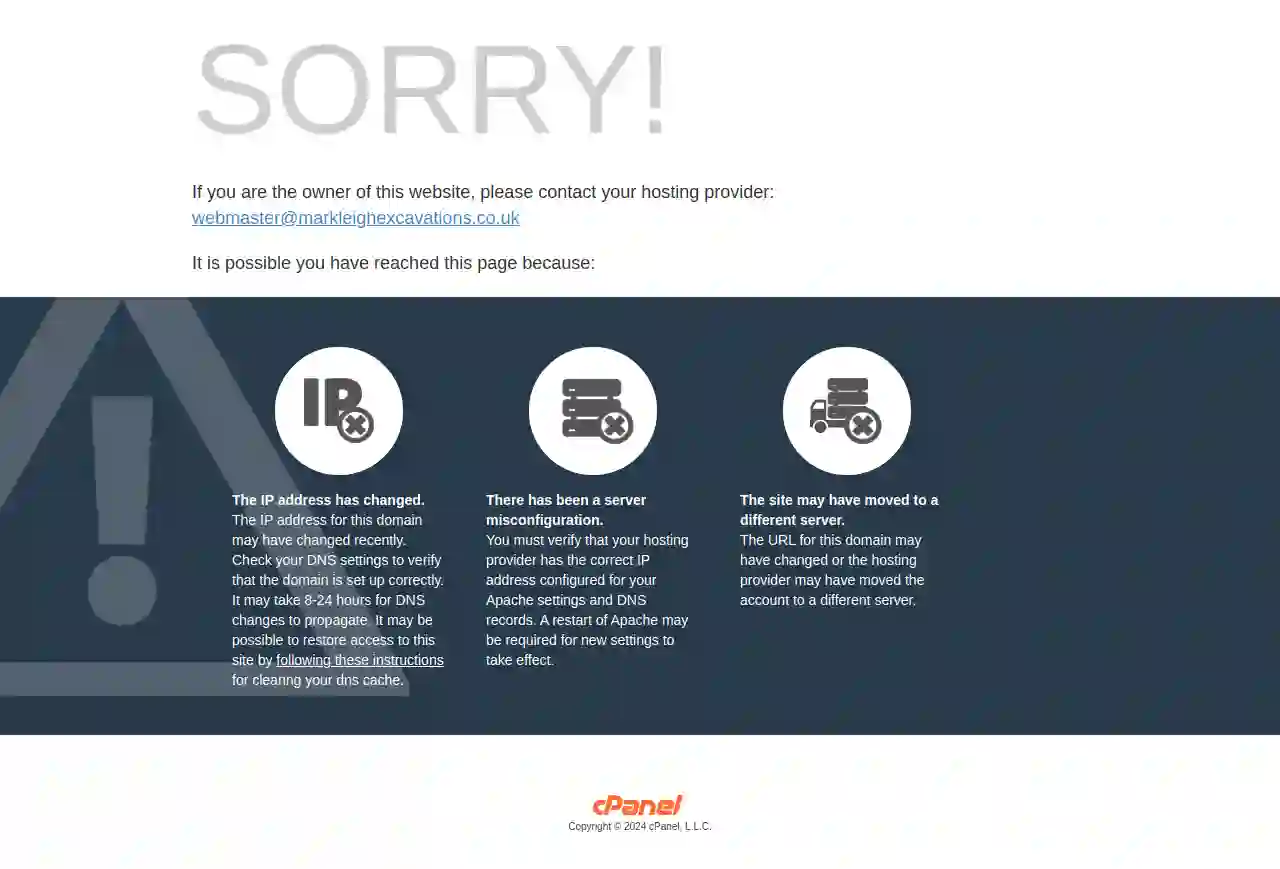Demolition Contractors Ashton in Makerfield
Find Demolition Contractor in Ashton in Makerfield
Receive 3 FREE Demolition Contractors Near Me quotes for your project today! Compare profiles, reviews, accreditations, portfolio, etc... and choose the best offer.

Mark Leigh Excavations Ltd
Unit 1, The Maltings, Colchester Road, Colchester, CO7 6DP, GBMarkleigh Excavations: Your Trusted Partner for Excavation Services Markleigh Excavations is a family-run business with over 20 years of experience in the excavation industry. We are committed to providing our clients with high-quality, reliable, and efficient excavation services. Our team of skilled and experienced operators is dedicated to delivering projects on time and within budget. We pride ourselves on our commitment to safety, customer satisfaction, and environmental responsibility. We offer a wide range of excavation services to meet the needs of our clients, including: Site clearance Foundation excavation Drainage installation Road construction Demolition And more! We are equipped with a fleet of modern and well-maintained machinery to handle any project, big or small. We also have a team of experienced engineers and project managers who can provide expert advice and guidance throughout the entire process. At Markleigh Excavations, we believe in building strong relationships with our clients. We are committed to providing excellent customer service and ensuring that our clients are completely satisfied with our work. Contact us today to discuss your excavation needs.
- Services
- Why Us?
Get Quote- AL
ALLAN DAVIES EARTHWORKS LTD
56 reviewsLeigh, GB- Services
- Why Us?
Get Quote - WL
WL Piling
4.714 reviewsLeigh, GB- Services
- Why Us?
Get Quote - La
Lawrence grab & Tipper Hire excavation Groundwork’s Aggregates
4.315 reviewsLeigh, GB- Services
- Why Us?
Get Quote - Ha
Hanchant Construction Ltd
Leigh, GB- Services
- Why Us?
Get Quote
Over 13,059+ Excavation Businesses in our network
Our excavation providers operate in Ashton in Makerfield and surroundings!
ExcavationHQ has curated and vetted Top Excavation Companies near Ashton in Makerfield. Find a top & reliable contractor today.
Frequently Asked Questions About Demolition Contractors
- Experience: Look for companies with a proven track record and years of experience in the demolition industry.
- Licensing and Insurance: Ensure the contractor is properly licensed to operate in your area and carries adequate insurance to protect you from liability.
- Safety Record: Inquire about their safety protocols and accident history. A reputable contractor prioritizes safety.
- References and Reviews: Ask for references from past clients and check online reviews to gauge their reputation and customer satisfaction.
- Professionalism: Choose a company that communicates clearly, provides detailed estimates, and has a courteous and responsive team.
- Waste Generation: Demolition generates a large volume of debris, contributing to landfill space and potentially releasing harmful substances into the environment if not disposed of properly.
- Air Pollution: Dust and particulate matter released during demolition can impact air quality, affecting human health and the environment.
- Noise Pollution: Demolition activities can generate significant noise, disturbing nearby residents and wildlife.
- Resource Depletion: Demolition consumes resources that could be salvaged and reused, contributing to resource depletion and environmental degradation.
How do I find a reputable demolition contractor?
What are the environmental impacts of demolition?
What is a demolition bond?
Can I do demolition myself?
How do I find a reputable demolition contractor?
- Experience: Look for companies with a proven track record and years of experience in the demolition industry.
- Licensing and Insurance: Ensure the contractor is properly licensed to operate in your area and carries adequate insurance to protect you from liability.
- Safety Record: Inquire about their safety protocols and accident history. A reputable contractor prioritizes safety.
- References and Reviews: Ask for references from past clients and check online reviews to gauge their reputation and customer satisfaction.
- Professionalism: Choose a company that communicates clearly, provides detailed estimates, and has a courteous and responsive team.
What are the environmental impacts of demolition?
- Waste Generation: Demolition generates a large volume of debris, contributing to landfill space and potentially releasing harmful substances into the environment if not disposed of properly.
- Air Pollution: Dust and particulate matter released during demolition can impact air quality, affecting human health and the environment.
- Noise Pollution: Demolition activities can generate significant noise, disturbing nearby residents and wildlife.
- Resource Depletion: Demolition consumes resources that could be salvaged and reused, contributing to resource depletion and environmental degradation.